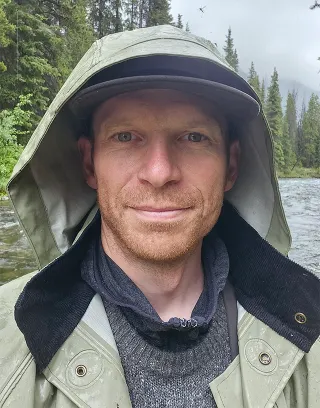
Bevington, Alexandre
PAg, MSc (University of Ottawa)
Biography
Alex spent 10 years working in the B.C. Ministry of Forests Research Program conducting research on integrating earth observation technology and geospatial analysis into hydrology, forestry and geohazards. Alex has worked closely with communities across northern British Columbia on pressing issues related to water and water security, and has worked in many parts of the Canadian Arctic and internationally.
Research and expertise
Mountainous and high-latitude watersheds in Canada are among the most sensitive regions on Earth to climate change, yet they remain some of the least observed. These headwater regions—including central and northern British Columbia and the western Arctic—are experiencing accelerated glacier retreat, thawing permafrost, shifting snow dynamics, and widespread ecological disturbance. These changes are altering hydrologic regimes and increasing the frequency and severity of hazards such as severe drought, rain-on-snow floods, glacier lake outburst floods, and terrain instabilities. Some areas are also of economic importance for infrastructure corridors and mining. At the same time, monitoring in these regions remains limited due to harsh access, sparse infrastructure, and high costs.
The overarching question driving this research is: "How are climate-driven changes in the cryosphere and terrestrial ecosystems interacting to reshape hydrologic regimes and hazards in these headwater watersheds?"
- Climate Change
- Computer Science
- Earth Science
- Environment
- Geography
- GIS and Remote Sensing
- Glaciology
- Natural Hazards
- Natural Resources
- Water
- English
- French